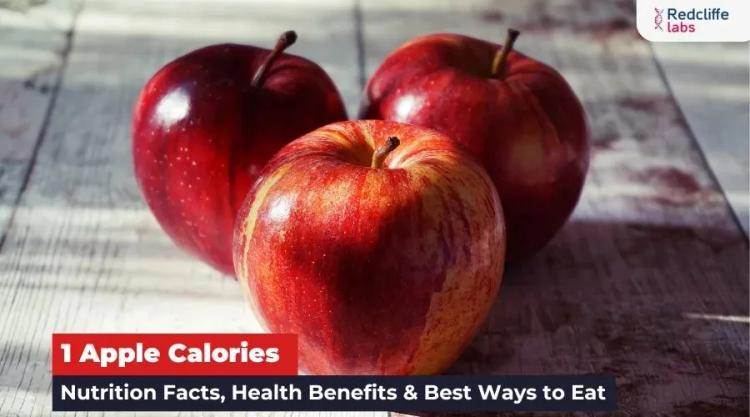Is Pomegranate Good for Cough? Know the Facts

Medically Reviewed By
Prof. Ashok Rattan
Written By Sheena Mehta
on Sep 17, 2024
Last Edit Made By Sheena Mehta
on Jul 19, 2025

It is often a matter of debate: Is pomegranate good for coughing? Read through the information that includes interesting facts, nutritional value, health benefits, side effects of eating pomegranate in cough, and more!
Are you aware that...
- It is mentioned in the traditional textbooks that pomegranate used to have beneficial effects on diseases concerning the gastrointestinal, respiratory, visual, and reproductive systems.
- Pomegranate and its preparations have been used to treat metabolic disorders, wounds, skin problems, and dental protection.
- The fruit also has therapeutic properties due to polyphenols.
Research highlights
- In the current study, ITM physicians revealed that pomegranate is an antimicrobial agent that can effectively treat cough and cold.
- According to Dr. Ranga Santosh Kumar, the consultant general physician at Yashoda Hospital, Hyderabad, the polyphenolic compounds in pomegranate may contribute to soothing irritation in the throat and respiratory tract, giving relief from cough. Additionally, the scientific research specifically underlines that the pomegranate peel is less beneficial in treating cough; however, more research is needed to establish its effectiveness conclusively.
Nutritional Value of Pomegranate
Pomegranates are highly nutritious. They are rich in antioxidants and nutrients, which makes them an excellent addition to any diet. A serving of 100 g pomegranate can offer:
| Calories | 83 kcal |
| Carbohydrates Sugar | 18.7 g 13.7 g |
| Dietary Fiber | 4 g |
| Protein | 1.7 g |
| Fat Saturated Fat | 1.2 g 0.1 g |
| Vitamin C | 10.2 mg (about 17% of the DV (daily value) |
| Vitamin K | 16.4 mg (about 21% of the DV |
| Folate (Vitamin B9) | 38 mcg (about 10% of the DV |
| Potassium | 236 mg (about 7% of the DV |
| Magnesium | 12 mg |
| Calcium | 10 mg |
| Iron | 0.3 mg |
| Phosphorus | 36 mg |
4 Nutritional benefits of pomegranate
Below are four nutritional benefits of pomegranate:
- Vitamin C helps boost immunity and supports the body to combat infections. A stronger immune system can minimize the duration of a cold or cough.
- Antioxidants: Pomegranates contain antioxidants, particularly polyphenols, which help fight oxidative stress and inflammation.
- Vitamin A, E, and Folate: These vitamins help maintain overall health, supporting skin, eye health, and cellular functions.
- Fiber is vital for gut health. It helps maintain a healthy digestive system. This can be beneficial for overall immunity.
The question remains: Is pomegranate good for coughing?
Coughs can be persistent and irritating, affecting people of all ages, especially during cold and flu seasons. When it comes to natural remedies, many fruits and herbs are celebrated for their ability to soothe the throat and alleviate coughing. One such fruit is the pomegranate. It has been widely appreciated for its myriad health benefits. But is pomegranate genuinely good for a cough?
6 Benefits of pomegranate for Cough
Below are six benefits of pomegranate that might aid in alleviating a cough:
Anti-Inflammatory Properties
Pomegranate contains anti-inflammatory compounds, particularly in the form of flavonoids and tannins. They help soothe inflammation in the respiratory tract that can aggravate a cough, making it more persistent.
Antioxidant Action
Pomegranate contains antioxidants that help combat free radicals in the body. Oxidative stress weakens the body’s immune system, and recovery may take time from illnesses such as the flu or the common cold, which are common causes of coughing. The antioxidants in pomegranate neutralize free radicals and thus may enhance recovery and reduce the duration of a cough.
Immune-Boosting Effects
Rich in vitamin C, pomegranate strengthens the immune system. Having a robust immune response is good for fighting off infections more effectively. Since viruses cause many coughs, a stronger immune system can speed up recovery and prevent complications.
Antibacterial and Antiviral Properties
The antiviral and antibacterial properties of pomegranate may help combat respiratory infections that cause coughing. Drinking pomegranate juice can inhibit the growth of bacteria and viruses, which are common triggers for throat infections and coughs.
Hydration
It is essential to stay hydrated when dealing with a cough. Dehydration can worsen throat irritation. Pomegranate juice is a good source of potassium, an important electrolyte, making it a refreshing and nutritious way to keep the throat moist. A moist throat is less likely to experience irritation, which in turn can reduce the frequency of coughing.
Throat Soothing Effects
Pomegranate juice has a slightly astringent quality, which can help soothe a sore throat. It acts as a mild demulcent, forming a protective film over mucous membranes in the throat. This can reduce irritation and provide relief from a dry, scratchy throat that often accompanies a cough.
Scientific Evidence: Does Pomegranate Help in Cough?
While pomegranate is often recommended in traditional remedies for cough and sore throat, scientific research specifically focusing on pomegranate's effects on cough is somewhat limited.
2 studies-based revelations provide insights into how pomegranate can be beneficial in fighting respiratory issues.
- In a study published in Phytotherapy Research, pomegranate extract was found to reduce inflammation markers in the body. This reduction in inflammation can ease respiratory tract irritation, which is a common cause of chronic coughing.
- A study in the Journal of Food Science demonstrated that pomegranate extract has significant antibacterial properties, particularly against Streptococcus bacteria. Since bacterial throat infections can lead to coughing, this suggests that consuming pomegranate or pomegranate juice could help prevent and alleviate coughs caused by bacterial infections.
4 Ways to Use Pomegranate for Cough Relief
Below are four different ways to incorporate pomegranate into your routine for cough relief:
- Pomegranate Juice: Drink freshly squeezed pomegranate juice to soothe a sore throat and support recovery from a cough. Regular consumption of pomegranate juice is recommended, especially during the cold and flu season.
- Pomegranate Seeds: You can eat pomegranate seeds directly. Include them in salads, oatmeal, or yogurt. They will provide a crunchy texture and relish all the health benefits of the fruit.
- Pomegranate Tea: Dried pomegranate peel can be used to make a soothing tea. The peel of the fruits contains antioxidants and anti-inflammatory compounds that aid in reducing coughing.
- Gargling with Pomegranate Juice: Some traditional remedies suggest gargling with diluted pomegranate juice can help soothe throat irritation and reduce coughing. Mix pomegranate juice with warm water and gargle for a few minutes to help clear the throat.
5 Downsides of Pomegranate
While the use of pomegranate is generally considered safe, there are still a few things to be aware of:
- Allergic reactions: If you experience allergic symptoms, like itching or swelling, discontinue its use immediately.
- Interactions with Medications: Pomegranate juice may interfere with certain medications, including blood thinners. You should discuss this with your doctor before consuming pomegranate juice in large amounts.
- Not good for pregnant ladies: Avoid pomegranate extract in pregnancy as it may contain fruit rind.
- Avoid diabetes: If you have diabetes, drinking pomegranate juice could be harmful.
- Avoid pomegranate juice If you have digestive tract symptoms like diarrhea and constipation.
6 foods you can eat during a cough and cold include:
- Lemons: Their consumption can safeguard the body from the common cold and cough.
- Pineapples are not-so-popular seasonal fruit, but they contain enzymes called ‘bromelain,’ which acts as an anti-inflammatory agent that breaks down mucus.
- Bananas are an ideal diet for a person who suffers from a cold and cough. They come under the term ‘BRAT,’ short for banana, rice, applesauce, and toast. Eating bananas can help reduce the cough symptoms.
- Kiwi is loaded with essential micronutrients, which, when eaten, aid in the movement of white blood cells in the bloodstream. These cells protect the body from germs.
- Strawberries are loaded with manganese, vitamin C, and dietary fiber. Together, they create a wall against a lengthy period of cough and cold.
- Apples can protect you from the cold and cough. They can help keep inflammation at bay.
6 Foods to avoid in cough and cold
- Dairy Products like cheese, milk, and yogurt can thicken mucus, worsening congestion.
- Fried and Oily Foods can irritate your throat and may slow down the body’s recovery process.
- Cold Beverages may worsen cold and cough symptoms, especially if there is throat pain.
- Processed Foods like fast foods and snacks are low in nutrients and high in preservatives. Hence, it can become challenging for the immune system to function properly.
- Caffeinated Drinks and coffee can dehydrate the body, which is counterproductive when combating colds.
- Too much Citrus Fruits: Citrus fruits are an excellent source of vitamin C, but their excessive consumption in cold and cough can irritate an already inflamed throat.
The Key Takeaway
The natural anti-inflammatory, antioxidant, and immune-boosting properties of pomegranate make it a valuable natural remedy for those dealing with a cough. Whether consumed as juice, seeds, or tea, pomegranate offers a delicious and nutritious way to support respiratory health and ease the discomfort of a persistent cough.
Frequently Asked Questions: Is pomegranate good for coughs?
1. Is it okay to eat pomegranate while coughing?
Yes, pomegranate is one of the best fruits to eat during a cold and cough. Its natural anti-bacterial, antioxidant, and anti-inflammatory properties help boost immunity and kill the viruses causing the cough.
2. What are the best fruits during a cough and cold?
The fruits to eat during a cough and cold include pomegranates, pineapples, lemons, kiwis, berries, and apples.
3. What should I avoid when coughing?
A high-sugar diet should be avoided when coughing, as it can impair immune system function. This will further slow down the recovery from a cough and cold.
4. How can I stop coughing at night?
You can stop coughing at night by staying hydrated, taking honey, drinking herbal tea, trying over-the-counter medicine, and having a steam shower.
5. Can I use pomegranate peel for coughing?
Yes. You can use pomegranate peel in a powdered form with water as a gargle to reduce coughs and sore throats.
Leave a comment
1 Comments
Kamalakar Niwal
Dec 26, 2024 at 6:18 PM.
This is very important information to society regarding knowledge about fruit like pomegranate role in cold and cough.
Myhealth Team
Dec 30, 2024 at 11:32 AM.
Thank you for your kind words! Pomegranate is indeed a valuable fruit with numerous health benefits, including boosting immunity and providing relief from cold and cough. Sharing such knowledge helps promote healthier choices in society.



